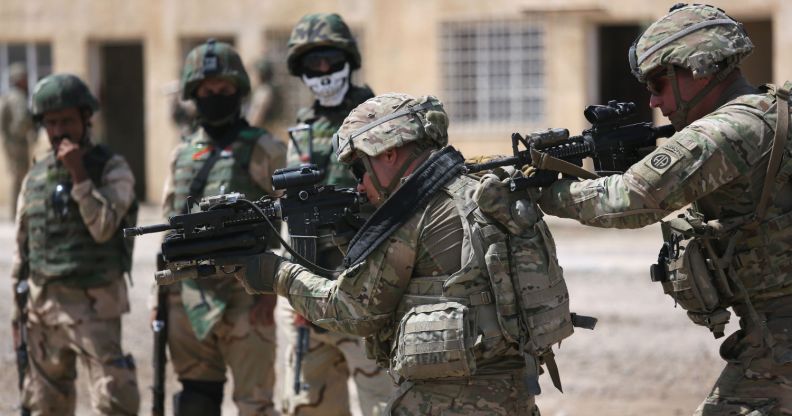LGBT families furious over Trump’s new military rule

A new homeland security policy that will restrict the conferral of automatic citizen for some children born abroad to active military members has incited backlash from LGBT+ groups.
Previously, all children born to US citizen parents were considered to be “residing in the United States”. Therefore, they would be automatically granted citizenship under Immigration and Nationality Act 320
But the United States Citizenship and Immigration Services (USCIS) released policy guidance on Wednesday that would make some parents serving abroad who adopted children not born on American soil be forced to apply for citizenship.
Moreover, this also will apply to those who had spent a limited time in the US.
Around 21% of adopted children are now part of same-sex families, according to data. Same-sex parents in the US are also four times more likely than different-sex parents to be raising an adopted child, studies suggest.
This means that, as many LGBT+ rights groups and immigration lawyers point out, the policy will disproportionally impact queer families.
While agency officials claimed the policy change will affect fewer than 100 families, citizenship will now have to come through an expensive, paperwork-intensive application process – if it even comes at all.
What does the new policy mean?
At its core, the rule tightens the USCIS’ definition of ‘residency’ that the agency takes into account when deciding whether Americans overseas can transmit their citizenship to their children.
Agency officials said an analysis of the past five years of applications showed that the change would apply to about 25 people a year.
The measure does not affect natural-born U.S. citizens, including children born overseas to US citizen parents who fulfil the statutory residency requirements.
For many groups, the crux of their criticism is how LGBT+ families tend to adopt, meaning that the measure will potentially impact them more.
LGBT+ military family advocacy group Modern Military Association of America denounced the policy in a statement.
“We are very concerned about how this new policy may affect our LGBTQ service members looking to adopt or use surrogates, sperm or egg donors or IVF,” said Peter Perkowski, legal and policy director.
“Our nation’s modern military families deserve better than this, and the last thing they should have to worry about is going through extra hoops in order to ensure their children are U.S. citizens.
“We continue to urge Congress to look into this new policy and hold this administration accountable.”
Policy change will “disenfranchise many Americans who represent this nation overseas”.
Currently, children gain American citizenship either by being born in the US, or, if born abroad, by inheriting it at birth from a citizen parent. Although, the parent must meet certain requirements.
Furthermore, children born abroad by active personnel sent out of the country previously would be granted the same US citizenship privileges as someone ‘residing’ in the US.
However, the Trump administration has rescinded this. But birthright citizenship as enshrined in the 14th Amendment to the Constitution will remain.
“While this policy does not specifically target LGBTQ people, it does appear to disenfranchise many Americans who represent this nation overseas,” Aaron C. Morris, executive director of Immigration Equality, said.
“The administration could have construed the law to benefit our civil servants and members of our military, people who give their lives every day in service of this nation.
“Instead, it chose a policy to make it harder for their kids to become citizens,” Morris added.
The policy change has added to the fire ignited by a previous rule switch last month. Such as a new regulation that would deny green cards to migrants who are determined likely to use public benefits.

